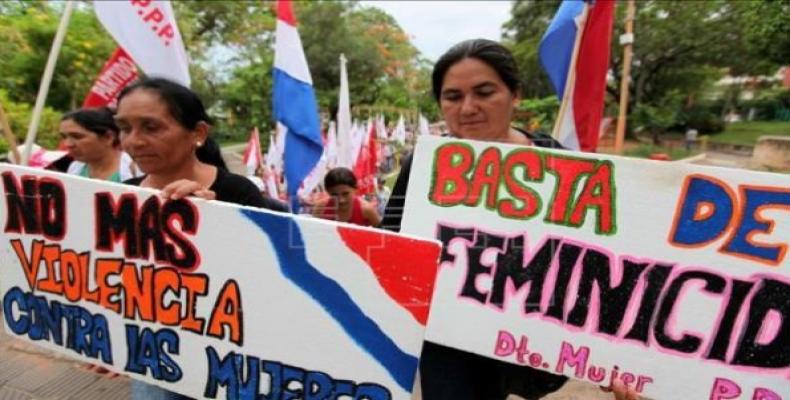Asunción, November 26 (teleSUR-RHC)-- Transgender, Indigenous, farmers, sex-workers and low-income women joined forces on Wednesday to march across Asunción in opposition to gender-based violence.
To mark the International Day of the Elimination of Violence against Women, the diverse crowd of actors represented different but intersecting struggles, offering a glimpse of just how widespread gendered violence is in the country.
For Vanessa Mencia, an organizer who works with low-income women in some of the most impoverished areas of the capital, the problem lies with the state and the men who run the country.
"All the authorities that govern us are men. It is they who make the decisions for us,” said Mencia. “We believe that most of the violence that women suffer from comes from the state, when they deny us access to employment and decent conditions to have and raise children," she told EFE.
State institutions including the police and the judiciary often ignore and neglect the plight of low-income women, who make up one out of every four Paraguayans. This has forced women to organize themselves into “brigades” to protect victims of male violence, explained Teodolina Villaba of the National Farmer Federation.
For sex-workers it is the police who constitute their primary concern. "We sex workers are harassed by the police, who come to ask us for money when we’re working on the street. And if we don’t have any, they arrest us,” said Monica Aquino from the United in Hope organization. “It seems like the times of the dictatorship have not ended for us.”
The stigma associated with the industry also relegates sex workers to the status of “whores,” Aquino denounced, saying many of her colleagues are often denied access to basic services such as health care.
This is most felt by transgender women, who often have no choice but to resort to sex work and suffer “double the discrimination and double the violence,” Aquino said, adding that 55 transgender women have been killed since the end of the Stroessner dictatorship in 1989.


